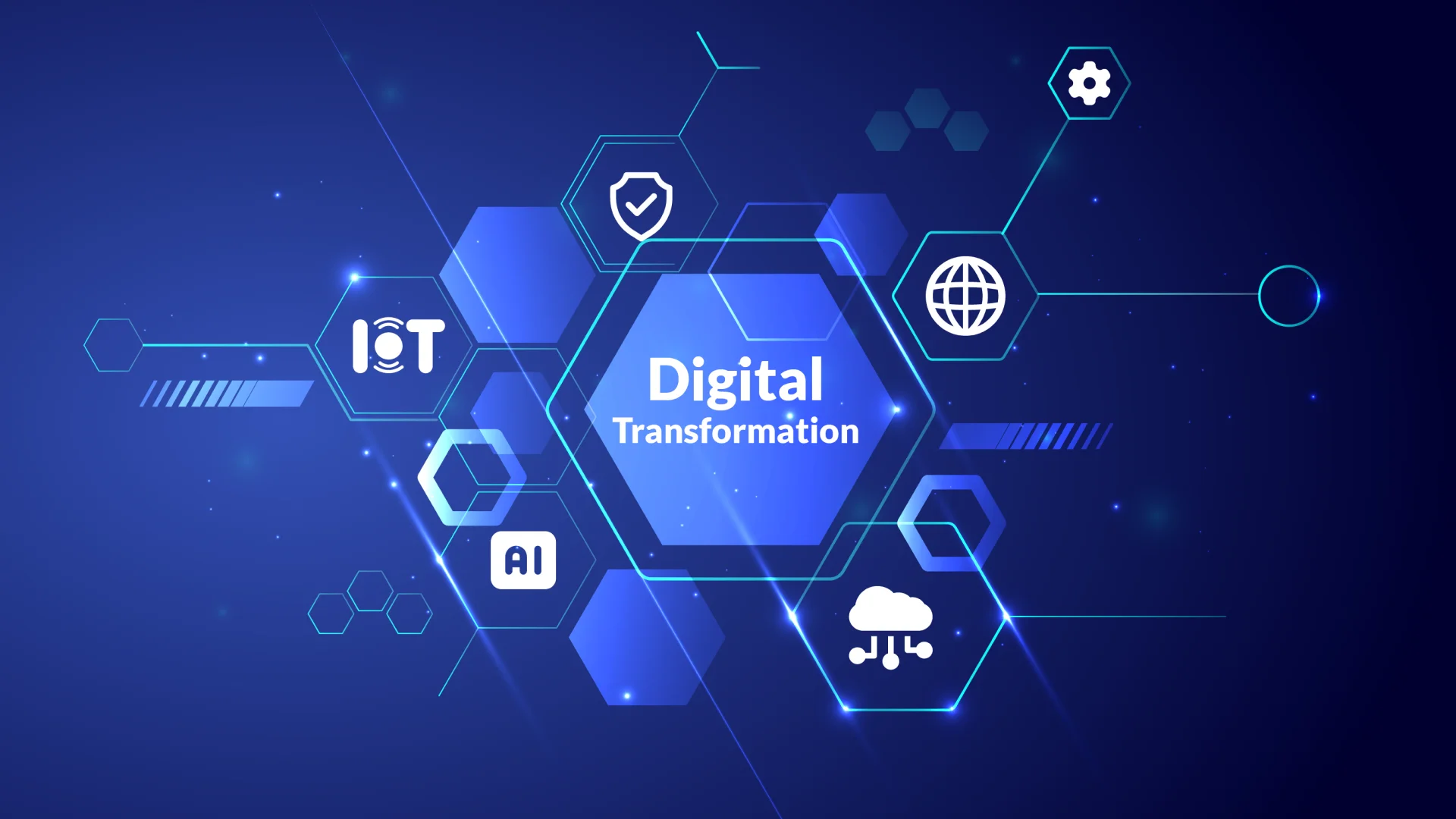Introduction to Digital Transformation
Digital transformation is the process of integrating digital technologies into all areas of a business, fundamentally changing how companies operate and deliver value to customers. It involves the adoption of technologies that enhance business processes, improve efficiency, and provide new opportunities for growth. As technology continues to advance, businesses across industries are undergoing digital transformation to remain competitive, adapt to market changes, and meet the evolving expectations of customers. Digital transformation is not just about technology; it’s about rethinking business strategies, workflows, and customer interactions to thrive in an increasingly digital world.
The Role of Digital Transformation in Business Strategy
Digital transformation plays a critical role in shaping modern business strategies. By incorporating digital tools and platforms, companies can streamline operations, enhance decision-making, and create more agile and responsive business models. This transformation often starts with a shift in mindset, where companies embrace technology as an enabler of innovation and growth. For example iowa head lines.com, cloud computing, big data analytics, and artificial intelligence (AI) are helping organizations harness valuable insights from data, which can then be used to refine business strategies, optimize customer experiences, and drive profitability. Digital transformation allows businesses to better align their strategies with market demands and technological advancements, ensuring long-term success in a competitive environment.
Impact of Digital Transformation on Customer Experience
One of the most significant benefits of digital transformation is its ability to improve customer experience. Today’s customers expect personalized, efficient, and seamless interactions with brands across digital channels. Digital transformation allows businesses to meet these expectations by leveraging data and digital tools to create more personalized, timely, and convenient experiences. For example, businesses can use customer data to offer targeted marketing, tailor product recommendations, and provide real-time customer support through chatbots and AI-driven platforms. By embracing digital transformation, companies can improve customer satisfaction, foster loyalty, and build stronger relationships with their audience, which ultimately leads to increased revenue and market share.
Digital Transformation and Operational Efficiency
Operational efficiency is a key focus of digital transformation efforts. Through the use of digital technologies, businesses can automate routine tasks, eliminate inefficiencies, and reduce costs. For example, the implementation of enterprise resource planning (ERP) systems allows businesses to streamline processes like inventory management, order processing, and human resources, leading to more efficient operations. In addition, digital tools like machine learning and AI can optimize supply chain management, predictive maintenance, and data-driven decision-making. By automating manual processes and leveraging technology to enhance productivity, businesses can free up resources for innovation and growth, giving them a competitive edge in a rapidly changing market.
Digital Transformation in the Workplace
Digital transformation also has a profound impact on the workplace. By adopting digital tools and platforms, businesses can improve collaboration, communication, and employee engagement. Cloud-based productivity tools, such as document sharing, video conferencing, and project management software, have become essential for remote work and team collaboration. Moreover, digital transformation empowers employees to work more efficiently by providing them with real-time access to information, analytics, and decision-making tools. It also enables businesses to develop new ways of working, such as flexible working hours and remote work opportunities, which can improve employee satisfaction and retention. In a world where talent is key to success, digital transformation helps organizations create a more dynamic and collaborative work environment.
The Role of Data in Digital Transformation
Data is at the heart of digital transformation. The ability to collect, analyze, and act on data enables businesses to make more informed decisions, predict trends, and drive innovation. Through data-driven insights, companies can optimize processes, enhance customer experiences, and improve product development. Big data analytics and machine learning algorithms are used to analyze vast amounts of data and uncover patterns and trends that may not be apparent through traditional methods. As businesses continue to undergo digital transformation, data will play an increasingly important role in shaping decision-making and strategy. Those that can effectively harness the power of data will have a distinct competitive advantage in their industries.
Challenges of Digital Transformation
While digital transformation offers many benefits, it also presents challenges that businesses must address to succeed. One of the primary challenges is the resistance to change, both from employees and leadership. Adopting new technologies and ways of working requires a shift in mindset and organizational culture, which can be difficult for companies accustomed to traditional methods. Additionally, the integration of new digital systems can be complex and costly, especially for legacy organizations with outdated infrastructure. Cybersecurity is another concern, as digital transformation increases the number of potential vulnerabilities in a business’s network. Businesses must implement robust security measures to protect sensitive data and ensure compliance with regulations. Overcoming these challenges requires careful planning, investment, and a clear digital strategy that aligns with the overall business goals.
Digital Transformation in Different Industries
Digital transformation is not limited to any single industry but has applications across sectors, from healthcare and manufacturing to finance and retail. In healthcare, digital tools such as telemedicine, electronic health records, and wearable devices are transforming patient care and streamlining administrative tasks. In manufacturing, the integration of Internet of Things (IoT) devices and automation has led to smarter production lines and more efficient supply chains. The financial services industry is using digital transformation to enhance customer service, improve security, and create more personalized financial products. Retailers are embracing e-commerce, mobile apps, and digital marketing to reach consumers in new and innovative ways. Regardless of the industry, digital transformation is driving growth, improving efficiencies, and enabling businesses to adapt to changing consumer demands and market conditions.
The Future of Digital Transformation
The future of digital transformation is exciting, as technological advancements continue to reshape the way businesses operate. In the coming years, technologies like artificial intelligence, 5G, augmented reality (AR), and blockchain will further enhance digital capabilities, creating new opportunities for innovation and disruption. AI and machine learning will continue to improve automation and decision-making, while 5G networks will enable faster data transfer and connectivity, opening the door to new IoT applications. Blockchain technology has the potential to transform sectors such as finance and supply chain management by offering secure, transparent, and decentralized systems. As businesses increasingly adopt these emerging technologies, the digital landscape will continue to evolve, driving new business models and opportunities.
Conclusion
Digital transformation is a powerful force that is reshaping businesses and industries across the globe. From enhancing customer experiences to improving operational efficiency and empowering employees, digital technologies offer immense potential for organizations looking to stay competitive in a digital-first world. While the process of digital transformation comes with its challenges, its benefits far outweigh the obstacles. As businesses continue to embrace digital tools and strategies, they will be better equipped to meet the demands of today’s fast-paced, technology-driven marketplace. The future of digital transformation promises to bring even more innovations, pushing companies to continually adapt, innovate, and evolve in order to thrive.



